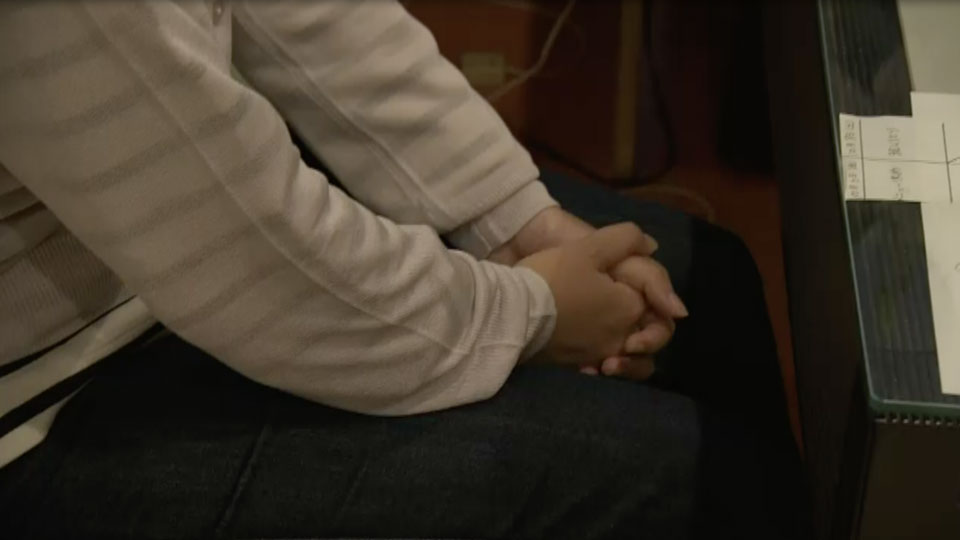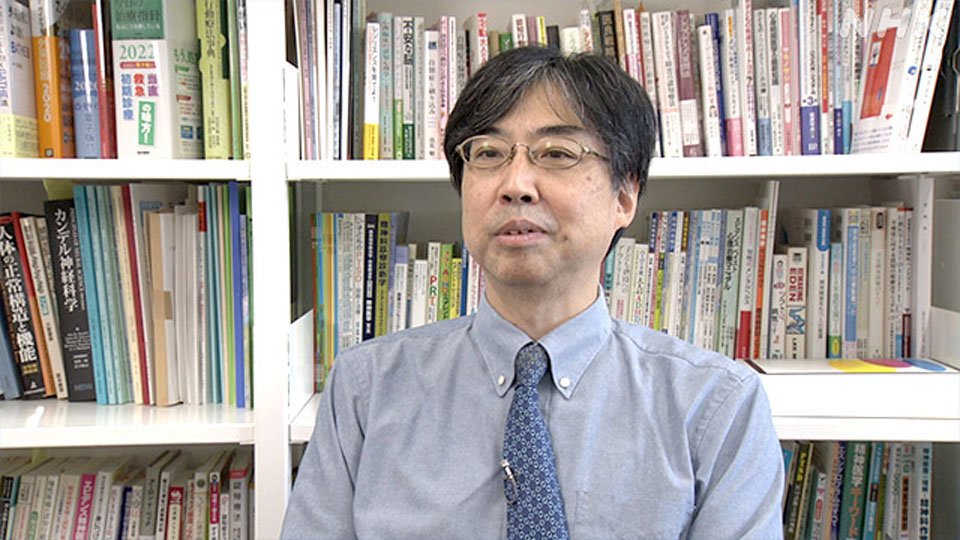'State of panic'
"At the time, I was in a state of panic, thinking that if I had the coronavirus, I'd surely die," recalls a woman in her 30s who sought help at a Tokyo psychiatry clinic.
The freelance writer also held a part-time job at a supermarket — a workplace that only added to the stress she faced due to her anxiety disorder. Her fear of infection manifested itself in physical breakdowns.

"Every time a customer came into the supermarket, I gave myself one push of disinfectant, rubbed it on my hands, and sprayed alcohol on the counter," the woman describes.
"Many times, while working, I'd suddenly get dizzy, my feet would shake and I'd almost fall. I'd cover it up by saying I was going to the bathroom."
The woman continues to see a psychiatrist every two weeks or so, and her health is gradually improving.
Government figures suggest her experience is becoming increasingly common. Asakawa Masaharu, the psychiatrist who diagnosed the woman, warns that anyone can develop anxiety disorder.
"I think external factors such as rising prices, the start of war, and uncertainty about the future have become more of an issue over the past few years," he notes.
"Compared to a few years ago, the percentage of first-time patients has increased tremendously."

Checklist
According to the National Center of Neurology and Psychiatry, anxiety disorder is a condition in which fear of impending events or concern about the future becomes excessive and affects behavior and social life for six months in adults and four weeks in children.
Physical symptoms include heart palpitations, breathing difficulties, shaking, and sweating.
The disorder includes the following:
Social anxiety disorder
An intense fear of being in front of other people, especially when talking, being the center of attention, and being evaluated
Panic disorder
Sudden physical symptoms such as heart palpitations
Generalized anxiety disorder
Excessive worry about an endless variety of issues
Some symptoms overlap with depression, such as difficulty sleeping, restlessness, and inability to concentrate.
The Japanese Society of Anxiety and Related Disorders has a checklist it developed with the cooperation of experts and recommends its use in clinical practice. It contains seven questions and is used as an indicator.

Level of anxiety
0-4 points Minor
5-9 points Slight
10-14 points Moderate
15-21 points Severe
People who score a total of 10 or more points are suspected of having anxiety disorder. A diagnosis can only be made through a specialized medical institution.

Anxiety disorder expert Shimizu Eiji, a professor at Chiba University Graduate School of Medicine, says the checklist can help people monitor their mental wellbeing, and seek help if necessary.
"Society needs to build a system to promote mental health," notes Shimizu, who also serves as chairperson of the Japanese Society of Anxiety and Related Disorders.

A call for more resources
According to a 2020 national survey, the number of patients who attended a medical institution with anxiety disorder was increasing. The latest data shows a figure of about 30,000 people — about 1.4 times higher than in 2014.

Shimizu says anxiety disorder is vastly under-reported because many sufferers do not seek help: "Potentially, 70 percent...do not see a doctor, which means there may be more patients with anxiety disorder than depression.
"Multiple illnesses can snowball from just anxiety to pathological anxiety, and then insomnia, or depression, and so on. Anxiety is a very common mental disorder, and we need to provide adequate mental health care, such as increasing the number of consultation services."
An uncertain future
According to a 2022 World Health Organization report, one in eight people worldwide has a mental health problem, the most common of which is anxiety.

Research is underway on the younger generation and the issues they worry about. A 2021 British survey considered climate change. Among 10,000 people aged under 25 in 10 countries, about 60 percent said it made them they feel strongly anxious, and about 45 percent believed it would affect their daily lives.
Caroline Hickman, a lecturer at the University of Bath, who conducted the study, says uncertainty about the future is a common worry.
She adds that young people often feel they are not being listened to when they talk about their concerns for climate change. They are also unable to see concrete solutions to the problem.

"Young people are influenced by what they see happening in the world on television and in the newspapers. The world is full of threats that worry and unsettle young people. They are worried about what will happen."
Pilot program in Tokyo
In Tokyo's Adachi Ward, efforts are underway to address young people's concerns and provide early support. SODA — which stands for Support with One-Stop Care for Adolescents and Adults — is a free consultation service for people between 15 and 25.
Originally funded by a research grant from Japan's health ministry, the program is an ongoing project. Specialist staff include psychiatrists and mental health workers who can provide referrals to medical institutions and agencies.

Uchino Takashi, psychiatrist and head of the counseling office, says allowing people to talk freely about their concerns can help prevent anxiety from getting worse.
"People can receive a certain level of specialized consultation at a stage before they need to visit a hospital. Support is offered as early as possible."



